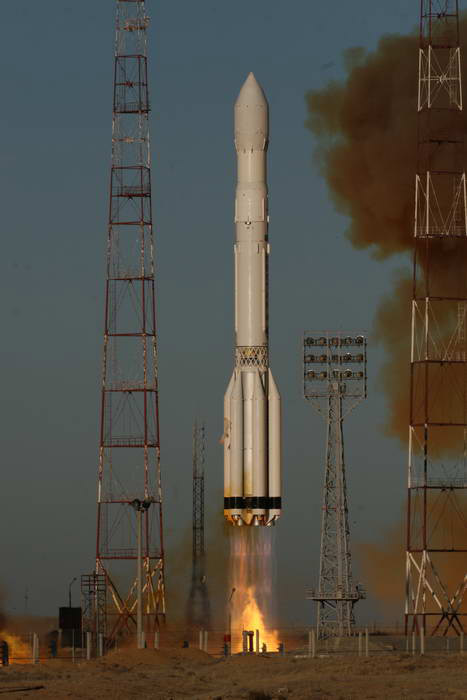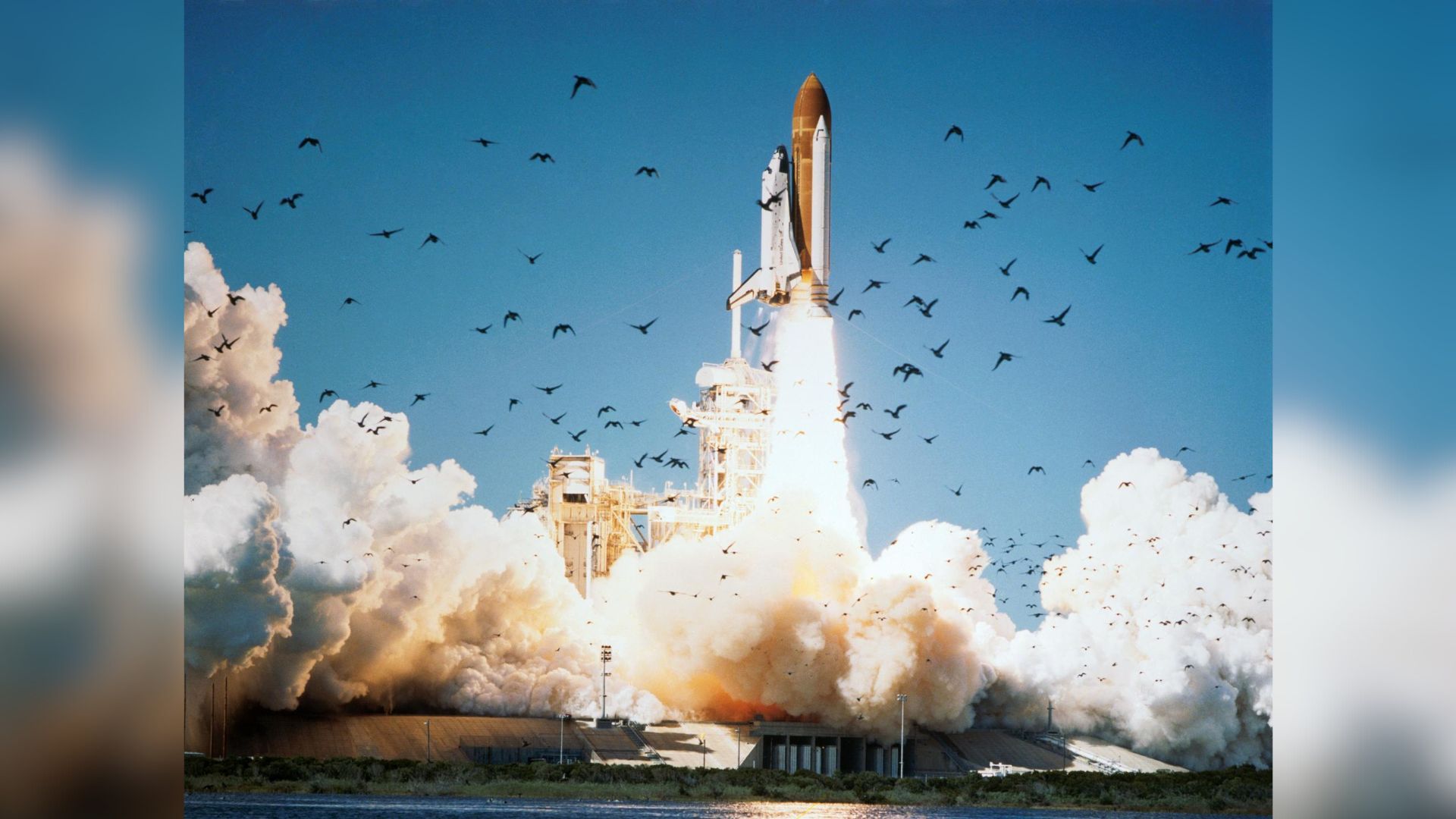Russian Satellites Crash Into Pacific Ocean After Failed Launch, Reports Say

A Russian rocket blasted off today carrying three new navigation satellites but failed to reach the proper orbit, Russian space officials have announced, with some reports stating that the satellites crashed into the Pacific Ocean after launch.
The large Proton rocket lifted off from the Central Asian spaceport of Baikonur Cosmodrome today (Dec. 5) carrying three new additions for Russia's Glonass-M navigation satellite constellation. The launch failure occurred shortly after the scheduled 5:25 a.m. EST (1025 GMT) liftoff.
"According to telemetry, the spacecraft's cluster was lofted into non-targeted orbit," officials with Russia's Federal Space Agency said in a statement. A board of inquiry has been established to determine "the cause of the contingency and to defined next steps," they added. [Photo: Proton rocket launches new Glonass-M satellites]
Some Russian news outlets, citing an unnamed source, have reported that the satellites crashed into the Pacific Ocean north of Hawaii.
"Three Glonass-M satellites fell into a non-navigational area of the Pacific Ocean in some 1,500 kilometers northwest of the city of Honolulu, administrative center of the state of Hawaii," the Russian newspaper Ria Novosti quoted the source as saying.
Glonass-M satellites are craft that perform a navigation service to civilian and military customers in Russia similar to U.S. global positioning system satellites.
Each satellite weighs just over 3,000 pounds (1,415 kg) at liftoff and is designed to last seven years in orbit, according to the satellite fleet manufacturer Information Satellite Systems Reshetnev Co. There are 26 Glonass satellites in orbit today, two of which are reserved as spares.
Breaking space news, the latest updates on rocket launches, skywatching events and more!
The operational satellites fly in three groups of eight to provide global navigation coverage, Federal Space Agency officials have said.
The satellites that crashed today today were the third batch to be launched in 2010. Three Glonass-M satellites were successfully launched in March, with three more reaching orbit in September.
A new series of Glonass satellites, the improved Glonass-K model, is in development, ISS-Reshetnev Co. officials have said.

Tariq is the award-winning Editor-in-Chief of Space.com and joined the team in 2001. He covers human spaceflight, as well as skywatching and entertainment. He became Space.com's Editor-in-Chief in 2019. Before joining Space.com, Tariq was a staff reporter for The Los Angeles Times covering education and city beats in La Habra, Fullerton and Huntington Beach. He's a recipient of the 2022 Harry Kolcum Award for excellence in space reporting and the 2025 Space Pioneer Award from the National Space Society. He is an Eagle Scout and Space Camp alum with journalism degrees from the USC and NYU. You can find Tariq at Space.com and as the co-host to the This Week In Space podcast on the TWiT network. To see his latest project, you can follow Tariq on Twitter @tariqjmalik.
